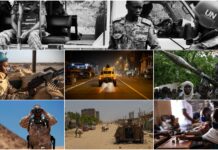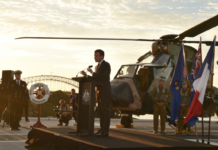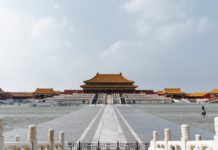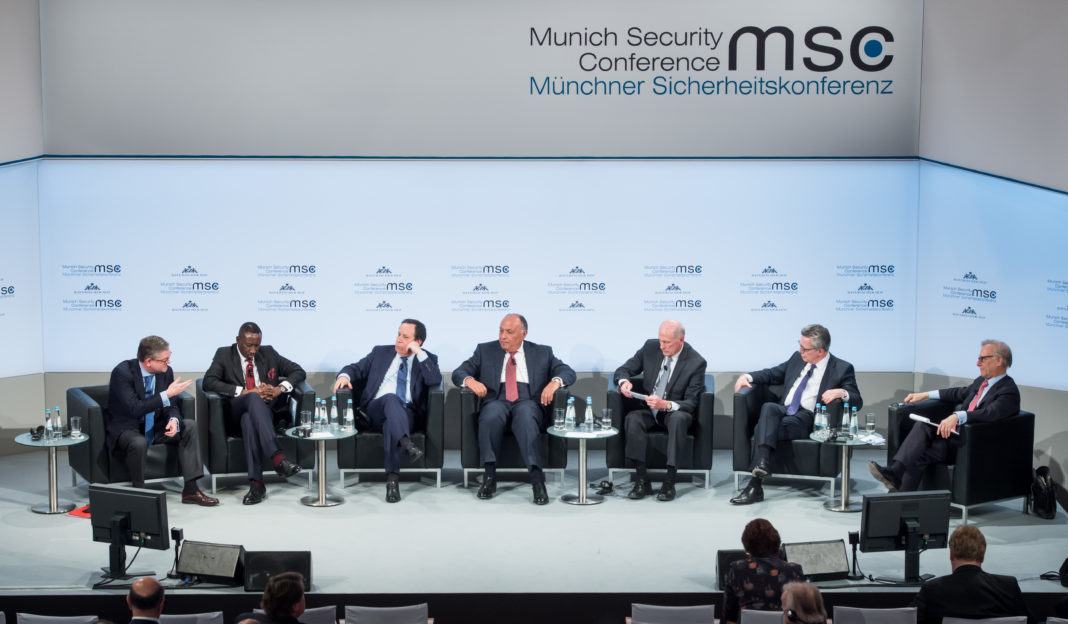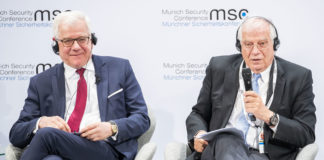The world is experiencing radical change and the security landscape is mired with threats old and new, requiring new approaches from our world leaders. As this article goes live, top security leaders and professionals are gathered at the 2018 Munich Security Conference to evaluate and take stock of the principal security threats facing the globe. It was this same time in 2007 when Russia’s President Vladimir Putin challenged US leadership, accusing it and NATO of endangering world peace and of encroachment on Russia’s immediate vicinity.
More than ten years later the world looks, in many ways, very different. Russia has since managed to impose its own agenda with unprecedented interventions in Crimea, Eastern Ukraine and the Middle East, while China has cemented its profile as an economic juggernaut and ascending global superpower, propelled by Xi Jinping’s philosophy of Socialism with Chinese characteristics. Further, the European Union faces a crisis of identity that is questioning the very concept of European integration while, for its part, the US has come out of the 2008 financial meltdown with renewed enthusiasm but politically uncertain of its role and relationship with the rest of the world and still embroiled in bloody Middle Eastern wars.
From a security standpoint, the rapidly changing geopolitical landscape is increasing the risk of inter-state and nuclear war, especially in the Korean Peninsula, which could drag the US and China into conflict, but also across the Middle East where the situation remains very volatile and where proxy wars between Saudi Arabia and Iran are being fought from Syria to Yemen. In the fifteen years that followed the collapse of the Soviet Union in the early nineties, the US and Russia appeared ready to cut back on their nuclear arsenals, and both arms control and disarmament featured high on their agendas. This period of renewed detente, however, has since given way to a new arms race that is also taking a nuclear dimension.
This state of heightened global insecurity is in turn compounded by new forms of transnational terror-inspired attacks and swift technological advances that have given rise to newer threats, from the misuse of open social media channels and the spread of fake news through to enhanced cyber technology capable of inflicting damage to adversaries’ systems from far away. Foreign interference in the 2016 US presidential election and the 2017 Wannacry and NotPetya cyber attacks are but real examples of this rising threat. Yet governments across the world seem unable to articulate a global cybersecurity protocol or treaty as well as individual cybersecurity policies aimed at deterring and preventing new attacks.
These and more of today’s pressing security threats are being discussed during the Munich Security Conference, which is preceded by the publication of their annual report which this year is entitled ‘To the Brink – and Back?‘, in a clear allusion to the critical times facing the world. Statements and quotes from prominent participants are available from the Conference’s website, with the following quote from UN Secretary General António Guterres worth reproducing here: ‘It might be naive to think – with the level of contradiction that exists today in the world – unity is possible. But I think it’s even more naive to believe that divided we can survive facing the challenges that we are facing in today’s world.’



